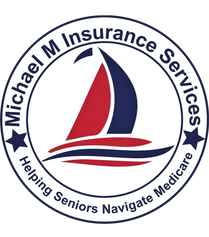It’s that time of year again! The Medicare Annual Enrollment Period (AEP) is here, and like
many beneficiaries, you’re likely sorting through piles of mail, sifting through online ads, and
juggling calls and emails. While it’s a great opportunity to make sure you have the right
coverage, it’s also easy to fall into traps and make mistakes that could impact your health
insurance for the coming year.
In this post, we’ll go over some common mistakes people make during AEP —and how to
avoid them. Taking a thoughtful, informed approach will ensure that you don’t regret your decision when it comes time for next year’s healthcare needs.
It’s tempting to choose a new plan based on a TV ad , phone call, or an email offering “too good to be true” rates. But rushing into a decision without doing the necessary research is one of the most common mistakes.
1. Don’t Rush Into a Decision Without Doing the Research
What to Do Instead:
- Take your time to compare your current plan to others.
- Review your healthcare needs: Think about any new medications, specialists, or services you might need over the next year.
- Consult your Medicare advisor: Your trusted advisor will help you navigate through the options, clarify what works best for your needs, and guide you toward the best coverage for your health.
Don’t make decisions based on flashy ads. Take a deep breath, review your options thoroughly,
and reach out for professional guidance to make the best choice for you.
2. Don’t Forget to Check for Plan Changes
Many beneficiaries stick with the same plan year after year without checking to see if anything has changed. While your plan might have worked fine last year, costs, coverage, and even
provider networks may have changed in 2026.
What to Do Instead:
- Read your Annual Notice of Change (ANOC): This document explains any changes to your plan, including benefits, premiums, and co-pays.
- Compare how your plan has changed against other available plans, especially if premiums or coverage have increased.
Even if you’re happy with your current plan, don’t assume it’s the best for next year. A quick review can save you money or improve your coverage.
3. Don’t Overlook Your Medications
You may love the idea of saving money with a Medicare Advantage plan that offers low premiums, but will your medications be covered? One of the biggest mistakes is assuming that your prescriptions are included without reviewing the plan’s formulary.
What to Do Instead:
- Check the formulary: Ensure your current medications are covered and see if they are in the most affordable tier.
- Consider changing plans if your current one doesn’t cover your medications, or if the coverage is too expensive.
- Compare Part D options for standalone prescription drug plans if you’re on Original Medicare.
4. Don’t Assume You Can Keep Your Current Doctor
Just because your doctor accepts Medicare doesn’t mean they will accept Medicare
Advantage plans . Many Advantage plans have networks, and if your doctor isn’t in-network,
you may end up paying more or having to switch doctors.
What to Do Instead:
- Double-check your provider’s network status: Look up your doctor’s name in the plan’s network directory before enrolling.
- If your doctor isn’t in the plan’s network, ask them which Medicare Advantage plans they accept, or consider a Medigap policy that offers more flexibility in choosing providers.
5. Don’t Assume Paying More Means Better Coverage
Many people assume that higher premiums automatically mean better coverage , but that’s
not always the case. Some $0 premium Medicare Advantage plans actually offer more
coverage than higher-priced Medigap plans , particularly in areas like dental and vision .
What to Do Instead:
- Consider $0 premium Medicare Advantage plans if you’re looking for added benefits like vision, dental, and hearing.
- If Medigap plans are too expensive, it might be worth exploring a Medicare Advantage plan that offers better value, especially for additional benefits.
Don’t assume that higher premiums are the only way to get the coverage you need.
6. Don’t Call an 800 Number, Fill Out Any Online Forms, Respond to Solicitation Emails or Texts, or Give Info to Telemarketers
The AEP brings out a lot of unsolicited offers, many of which come from untrustworthy sources. Be cautious of:
- Calling 800 numbers found in unsolicited ads or mailers.
- Filling out forms on unfamiliar websites.
- Responding to email or text solicitations asking for personal or financial information.
- Providing any information to telemarketers over the phone.
These tactics are commonly used by scammers to gather your personal data or even get you to sign up for a plan you don’t need or understand.
What to Do Instead:
- Hang up if a telemarketer calls about Medicare plans.
- Don’t respond to emails or texts offering “special deals” on Medicare plans.
- Avoid filling out forms on unfamiliar websites or providing personal details to unsolicited callers.
- If you’re contacted by a company, verify their credentials by checking with Medicare.gov or a trusted source before sharing any information.
Instead, work with a licensed Medicare advisor or use trusted resources to research your options.
Final Thoughts: Let Your Medicare Advisor Be Your Guide
The Annual Enrollment Period can be overwhelming, with endless advertisements,
solicitations, and pressure to make decisions quickly. But rushing into a decision or falling for scams could have lasting consequences.
Let your Medicare advisor be your guide — someone who can help you understand the
options, navigate the confusion, and make an informed decision based on your unique needs.
Take a step back, review your options carefully, and don’t fall for the traps.

